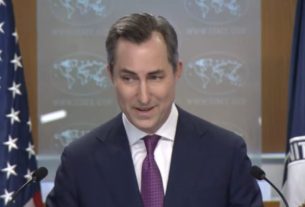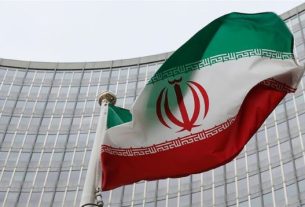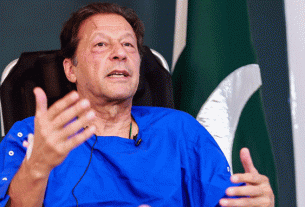Ousted Prime Minister Sheikh Hasina has been sentenced to death over two charges committed during the July mass uprising, according to Bangladeshi english news paper Prothomalo.
International Crimes Tribunal-1 delivered the verdict today, Monday. This is the first case related to killings and other crimes against humanity during the July uprising.
The tribunal stated in the verdict that the crimes have been proven against Sheikh Hasina and the two other accused.
Of the remaining two accused, the then Home Minister Asaduzzaman Khan was also convicted to death, and the then Inspector General of Police (IGP) Chowdhury Abdullah Al-Mamun has been sentenced to five years of imprisonment.
Sheikh Hasina and the then Home Minister Asaduzzaman remain absconding and are currently in India. Former IGP Chowdhury Abdullah Al-Mamun is the only accused in custody and testified before the tribunal after admitting his role.
The three member International Crimes Tribunal-1, headed by Justice Golam Mortuza Mojumdar, delivered the verdict in a packed courtroom. The other members of the tribunal are Justice Md Shafiul Alam Mahmud and Judge Md Mohitul Haque Enam Chowdhury.
The proceedings began today, Monday, at around 12:30pm. The 453-page verdict is divided into six sections.
The tribunal presented details of evidence and information of Sheikh Hasina’s crimes against humanity, obtained from various videos recorded during the July uprising.
During the proceedings, descriptions were given of the audio, video, and other evidence submitted to the tribunal, as well as statements from victims and witnesses.
Video evidence was presented showing how protesters were killed with lethal gunfire at various locations, including Dhaka’s Jatrabari, Rampura, Badda, Savar, Ashulia, and Rangpur.
Earlier, excerpts from reports published by various international organisations on human rights violations during the uprising were read out. Around 1:15pm, telephone conversations between Sheikh Hasina and various people during the uprising were played. A short while ago, a phone conversation between Sheikh Hasina and then Information Minister Hasanul Haq Inu was also presented.
Bangladesh Television broadcasted the verdict announcement live from the courtroom of International Crimes Tribunal-1.
A total of five charges were brought against the accused: Delivering inciting speeches; Ordering the use of lethal weapons to suppress and eliminate protesters; Shooting and killing Abu Sayed, a student of Begum Rokeya University in Rangpur; Shooting and killing six protesters in Dhaka’s Chankharpul area; and Burning six people to death in Ashulia.
Earlier, security was heightened in and around the premises of the International Crimes Tribunal centering the verdict of Sheikh Hasina who was toppled in a mass uprising on 5 August 2024.
On Monday morning, members of the armed forces, police, the Rapid Action Battalion (RAB) and specialised units such as the Armed Police Battalion (APBN) were deployed extensively across the tribunal compound and its surrounding areas. Armoured military vehicles were also present.
In the morning, Mir Mahbubur Rahman Snigdha brother of Mir Mahfuzur Rahman Mugdha, who was martyred in the July mass uprising, arrived at the International Crimes Tribunal premises, along with Dhaka University Central Students’ Union (DUCSU) Vice President Shadik Kayem, Inqilab Mancha spokesperson Sharif Osman Hadi, and several individuals injured in the July uprising.





